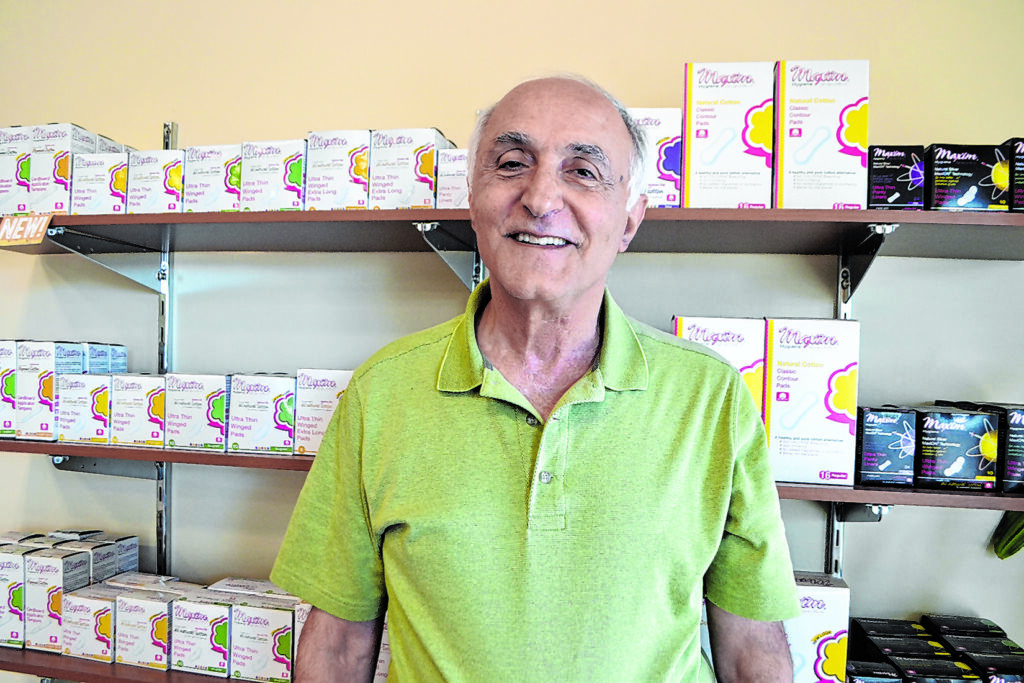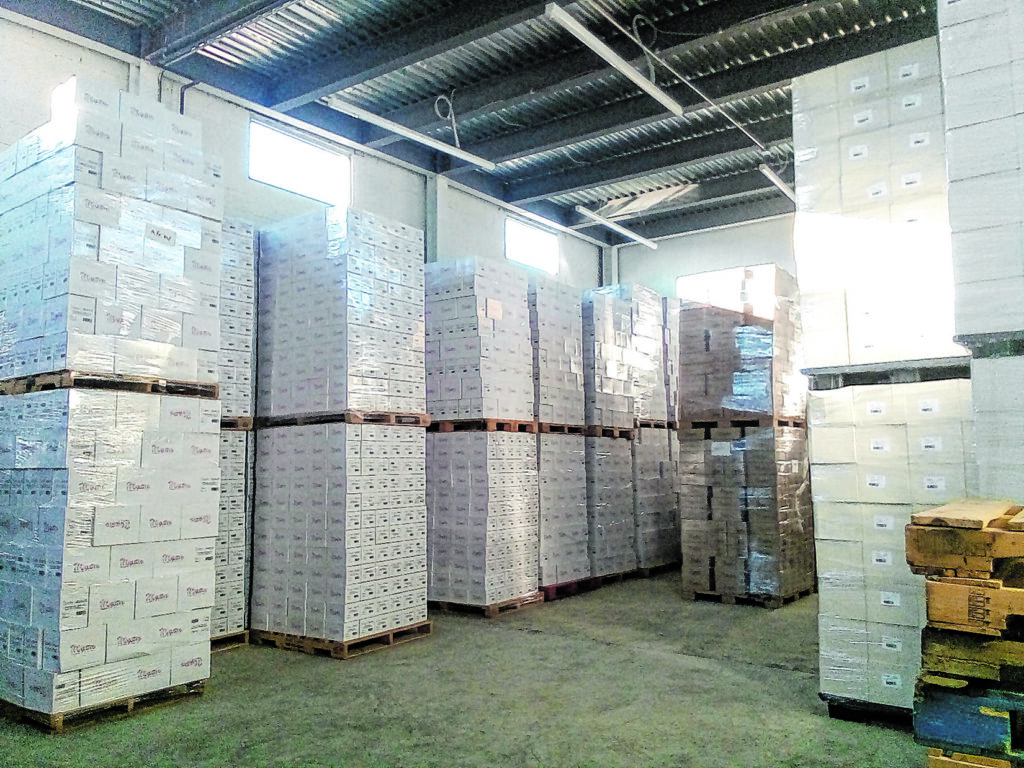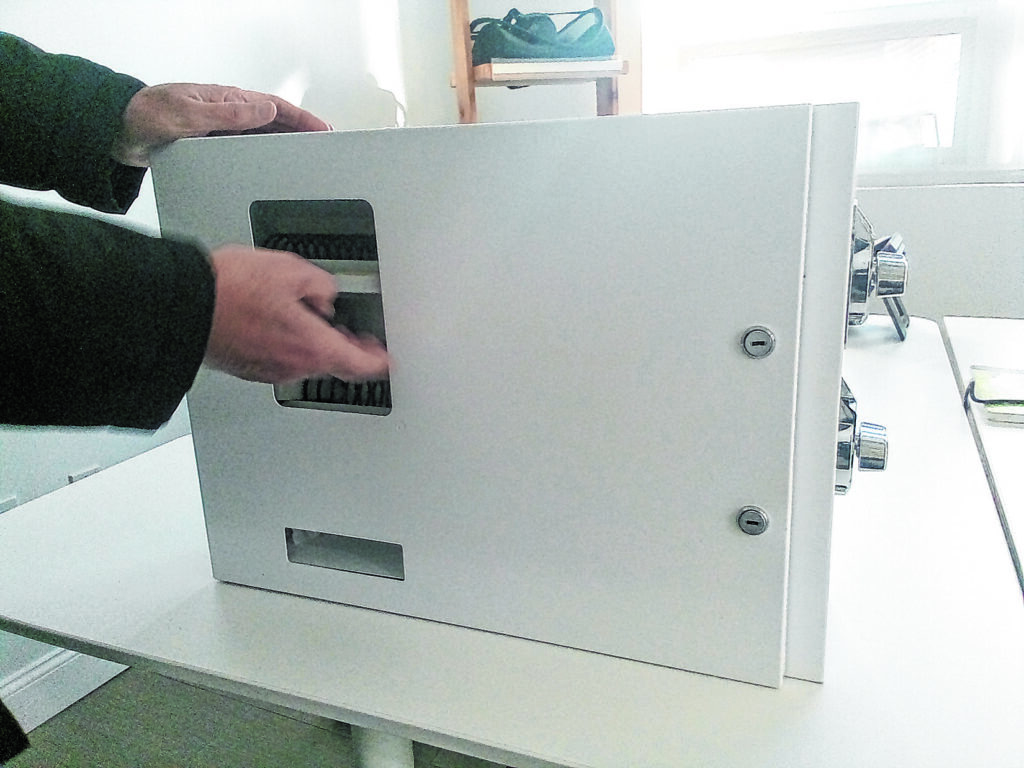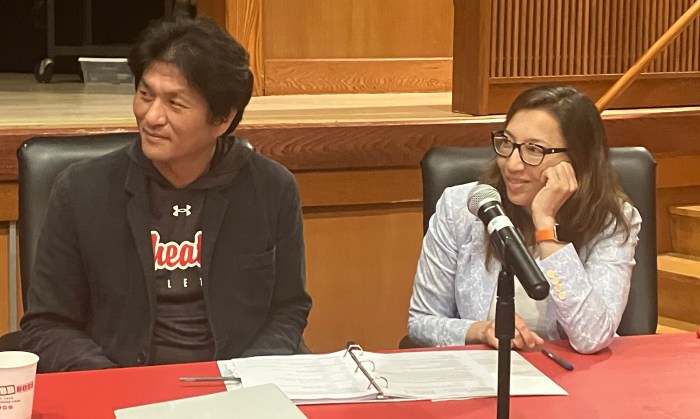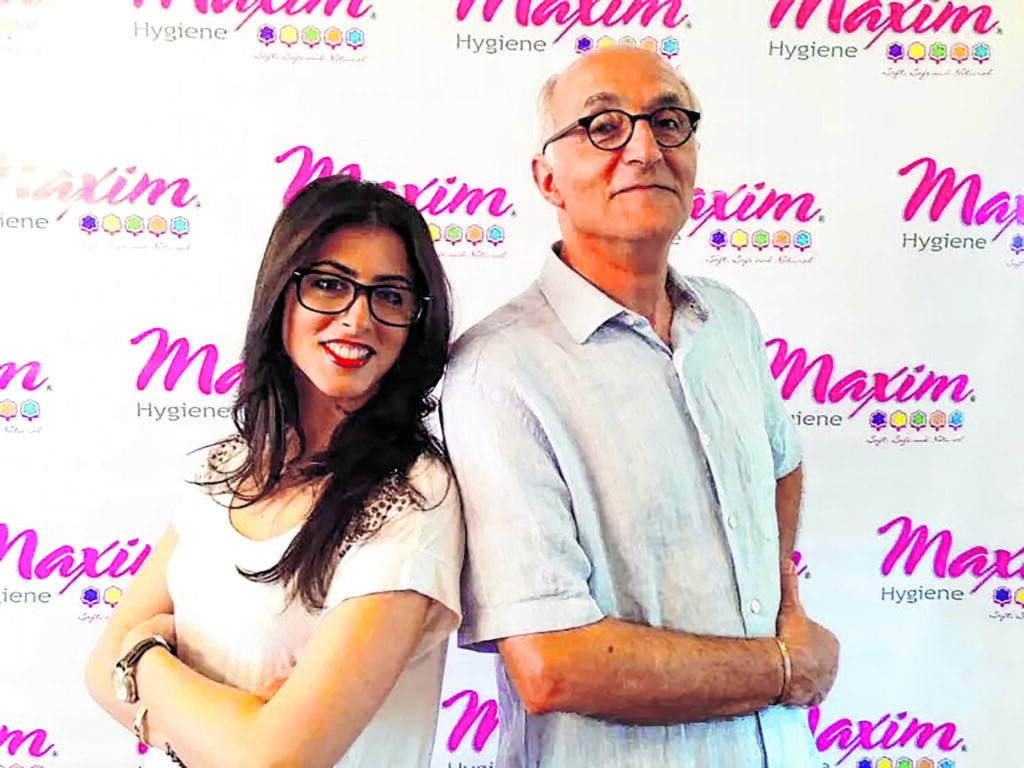
Just around the corner from Anton Media Group’s offices in Mineola, there’s a modest-looking warehouse and showroom that’s responsible for stocking crucial menstrual products in schools, state office buildings, and other public facilities around the country.
As it happens, the company is also living proof that, despite popular wisdom, it is indeed possible to have a normal conversation with your dad about periods.
Founded in 2006, Maxim Hygiene Products (pronounced ‘max-EEM’) is the handiwork of company CEO Kenneth Alvandi and his daughter, Rebecca Alvandi Yadegar, who serves as the company’s co-founder, vice president, and head of communications.
In the company’s Mineola headquarters, a double-warehouse space houses floor-to-ceiling crates of tampons, various sanitary pads, cotton rounds, swabs, and other hygienic paraphernelia. A bright showroom in front contains boxes and shelves of Maxim products, too, for current and prospective clients to explore.
In Alvandi’s office, there’s also a full shelf of colorful bags and boxes containing more different kinds of hygiene products than is easy to count quickly. “That’s research,” he said.
Alvandi, who is tall and soft-spoken with an air of gentle, mildly amused courtesy about him, may not be exactly what most people picture when they hear the phrase “menstrual-product entrepreneur.” But he’s definitely put in the time and work, and gained a lot of expertise, being just that over the years.
After fleeing Iran during its 1979 revolution (and leaving behind his computer consulting firm), Alvandi and his wife started their U.S. journey in Queens, from which he slowly built up a local personal-care-product distribution company with hard work and a van.
In 1993, he had the opportunity to buy a sanitary-pad factory in Ontario, Canada when one of his suppliers closed down, and Alvandi spent the next 13 years supplying white-label pads to other firms and learning all he could about the production side of the industry.
By 2008, Alvandi was ready to launch Maxim Hygiene Products here in Mineola, where he supplies European-made organic tampons, pads, cotton swabs, and similar products to schools, businesses, and government offices around the country via a handful of distributors.
Today, the company does around $2,000,000 in sales per year, Alvandi told Nassau Illustrated News at his office during a recent visit.
Maxim already supplies a large number of schools and other public buildings with pads and tampons from coast to coast (a fact which made the company’s Mineola showroom instantly recognizable to this reporter from the sidewalk), and hopes to continue expanding its reach.
Yadegar, his daughter, has also expanded the company’s reach online with its thoughtful hygiene-focused blog, which covers everything from pregnancy products and menstrual health to safe sex, green culture, and gender inclusion in their chosen industry.
According to Alvandi and Yadegar, the market for organic cotton products is still poised to grow significantly, even if the past decade or so has shown a slower-than-expected transition to organics from both consumers and manufacturers.
“[My dad] was doing this long before it was cool,” Yadegar told Newsweek in 2017.
As schools and (some) other public buildings increasingly start to provide sanitary products for free — a step that will help, slowly but surely, to reduce the lifetime cost of hygiene products for people who menstruate, i.e. thousands of dollars — the father-daughter team hopes their low-cost, organic cotton products can be part of that, too.
Before wrapping up Nassau Illustrated’s tour of Maxim, Alvandi quietly showed off a new kind of sanitary product bathroom dispenser, in gleaming white metal, that he had brought in.
Amazingly, from my perspective, it included a small window that actually showed the products inside, lined up in the loops of a metal coil like you’d see on nearly any vending machine built to date. In my experience, a bathroom dispenser is fancy if it has pictures of the products stuck on somewhere, so these modest upgrades seemed revolutionary.
Alvandi nodded, pointing to the two traditional metal turning mechanisms on the side of the box and the small window on the front. “You can set it to be free, you can set it to pay, like always. And you can see.”




